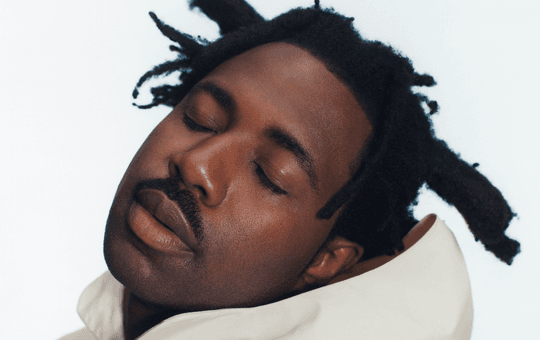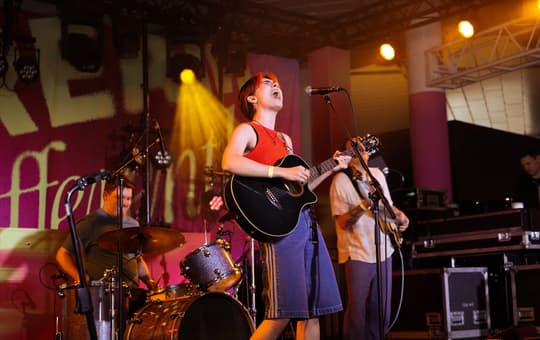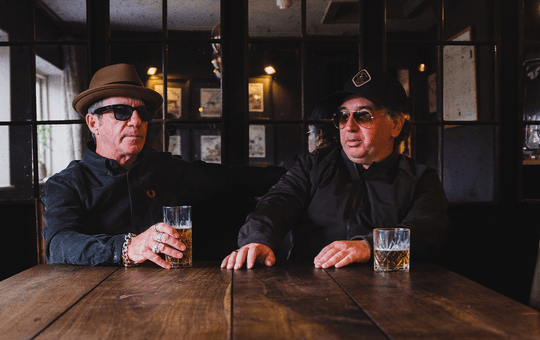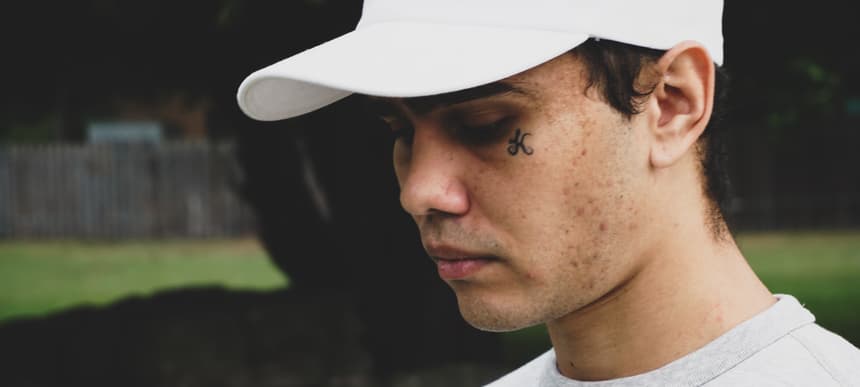
Meet Kobie Dee, the Kamilaroi rap star making music for marginalised voices
One morning last year, four days after his daughter was born, Kobie Dee woke up with a tattoo on his face. “There wasn’t much I could do about it,” Kobie says. “So I had to accept it. I was drunk at the time. I always knew I was going to get a tattoo on my face, I just didn’t know I was going to do it then.”
It’s an overcast day and Kobie’s smoking a cigarette outside his mum’s house in Matraville, a sprawling, unremarkable suburb of Sydney. Kobie Dee grew up in neighbouring Maroubra, which neighbours Coogee, which neighbours Bondi. This area, The Eastern Suburbs, is better known for its white sand beaches, surf culture and ex-pat community than its rap scene.
Then again, taking any space in Australia at face value is problematic in itself. Many artists in Australia’s rap community come from Aboriginal and Torres Strait Islander backgrounds. Kobie himself is Kamilaroi, an indigenous people whose land extends from New South Wales to Southern Queensland and Kobie Dee’s label Bad Apples Music sign only “black fellas” (Kobie includes women under this umbrella). The stories these artists tell with their music is both heartbreaking and empowering. In one verse they’ll share the atrocities their ancestors faced alongside their own struggles growing up in a prejudiced system. Or the pride they feel in their ancestry while living in a country that still refuses to acknowledge whose land this is anyway.
The grass in Kobie’s front yard is yellowed with drought and full of kids toys. There’s a trampoline, a red car lying on its side and a toy buggy turned to face the low-rise bungalow he lives in. Even if we weren’t in the midst of a pandemic we wouldn’t be able to shake hands because Kobie has broken his fist boxing. His right hand is swollen and bruised.
Kobie’s 22 and he looks it. His eyes are bright brown and sensitive and the letter K is tattooed under one of them (his daughter’s called Kali). He wears a white Yves Saint Laurent hat and a grey Ralph Lauren tracksuit that’s an exact colour match to the sky. He’s about 5’9 and very slim, bordering on skinny.
“Nice to meet ya,” Kobie says, stubbing his cigarette out on a metal fence. “Let’s go for a walk then.” He’s softly-spoken and extremely shy which is unexpected considering his high-energy nature on stage and lyrics so deeply personal he essentially turns himself inside out. As we walk, Kobie tells me in no uncertain terms that 2020 was supposed to be his year. “There was [sic] heaps of shows coming up and they’ve all been postponed,” he says. “I had one with JD Sports and adidas in Civic Underground. And I had a few on NAIDOC week, a week for Indigenous recognition. But everything’s been cancelled.”
Kobie Dee has attracted a lot of attention in Australia in the last two years. He got signed to rap superstar Briggs’ label, supported Dave on the Sydney leg of his tour and showed off his MC skills on groundbreaking Australian music platform Triple J Unearthed. Since then his tracks have racked up hundreds of thousands of streams, but this isn’t new. Kobie’s first-ever recording in year 7 went viral across Sydney high schools. Listen to his music and it’s easy to see why he strikes a chord with so many people; it’s for anyone who’s struggling to be heard, especially for those feeling marginalised. He cuts his tracks with melancholic piano and wistful guitar, collaborates with soul singers and doesn’t camouflage his accent when he raps. But it’s his lyrics that makes Kobie’s music unforgettable. They’re unflinching.
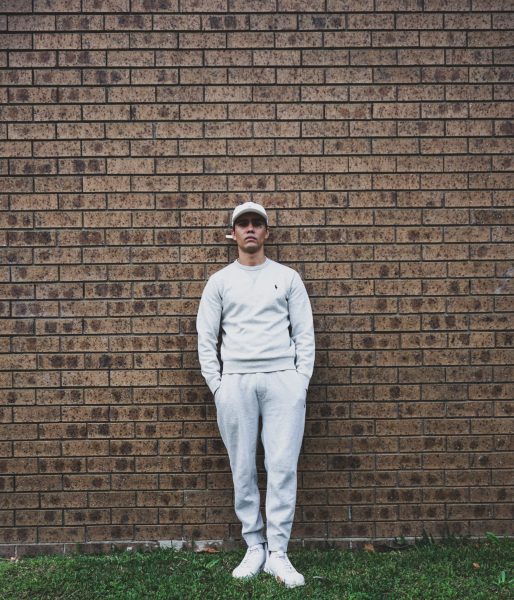
‘Still Standing’, Kobie’s most recent track, addresses the atrocities that occurred between 1910 and 1970 when many Indigenous people, now known as the Stolen Generations, were forcibly removed from their families and raised in white homes. “Could you imagine / being taken as a kid / Stolen from your mother by the hands of a pig / Being placed in a home where no love is ever shown / In your heart you no longer want to live.”
Like many First Nation peoples, everything Kobie knows about his ancestry and culture he learnt himself. Australian schools do not teach Indigenous history and Kobie’s paternal great grandfather was one of the Stolen Generations. “He was taken as a kid from the south coast and brought here,” Kobie says. “He wasn’t allowed to speak his language, he didn’t know who his family was. So that was taken from us.”
“My people had no written language,” he continues. “All our history was passed down through song or dance. I just feel like I’m passing down that tradition by telling stories of our age, of our communities.”
Kobie grew up without a dad, and now being a father is an important role for him. His daughter takes the starring role in his music videos. “I want to show her off as much as I can,” he says.
We’re sitting in a park behind Kobie’s house now. He lights another cigarette and his sleeve rolls up to reveal a tattoo that says ‘TRUST NO ONE’. “There was a period last year where I just didn’t trust anyone,” he admits. “It was a dark stage in my life. And that’s just what I believed so I thought fuck it, I’ll get that tattooed on my arm.”
A lot happened to Kobie last year. Around the time he found out he was going to have a baby, doctors found a tumour on his bladder. “I started drinking more and doing drugs more. Before I knew what the tumour was, I just accepted I was going to die. And I spiralled down and it was hard to get out of it.” This wasn’t the first time Kobie battled with alcohol and drug addiction. He got into boxing when he was 17 after overdosing on ecstasy and he used to get wasted before performing. “I just couldn’t handle the nerves and the emotion of it all, so I’d get heaps drunk before I’d go on stage. I’d still do my thing, but I just wasn’t there.”
Australia’s Department of Health states that Aboriginal and Torres Straight Islanders are less likely to drink alcohol than other Australians, but those that do drink are more likely to do so at dangerous levels. On the government website it writes that: ‘If you’re an Aboriginal and Torres Strait Islander, you may face: trauma that extends across generations, family separation, insecure housing, negative experiences early in life, racism, difficulty finding work, stress. These can contribute to drinking at risky levels.’
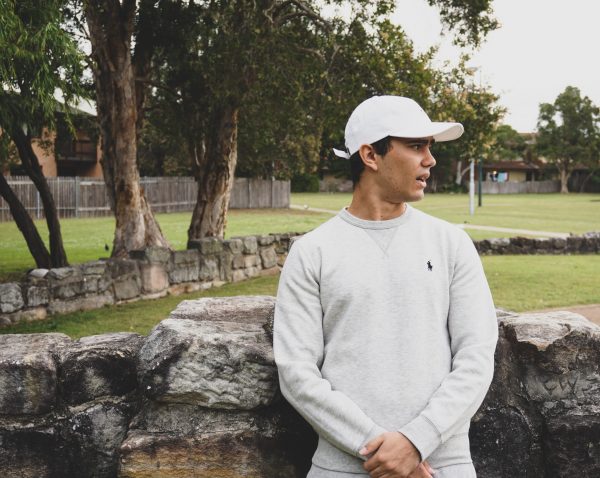
No one prepared Kobie for the intensity of fulfilling his dreams; performing to thousands and meeting his heroes. No one told him that when it happens, it might be too much to handle. Last year, on 18th July, Kobie opened up for UK rapper Dave in Sydney. “He’s one of my favourite artists,” he says. “When I found out, it was crazy. I was telling everyone. I was like… I’m opening up for Dave.” Kobie’s voice drops. He pauses. “But again it was at a time… I was so drunk. I seen Dave and I was too shy. I never went up to say hello. I didn’t have my phone on me so I couldn’t take a photo. I couldn’t do anything. I did my show and watched him from the crowd. I didn’t speak to him. That’s one of my biggest regrets.”
It was Kali that made Kobie turn his life around – three months after she was born, Kobie checked himself into rehab. “I got clean. And I got the results back for my bladder, it wasn’t cancerous.”
“My daughter turned one on April 10th,” he continues. “She’s growing up. She’s grown her first tooth. She gives me a reason to keep doing what I’m doing. If I didn’t have my daughter I don’t think I’d have gone to rehab. I’d still be out there drinking and doing drugs. It just gives me motivation to give this music thing all I’ve got. I want to leave something behind for my daughter.” He pauses, stubbing out his cigarette on the wall next to him. “That’s another reason why I love getting her into music videos. I know I’m not going to be here forever and it gives her something to look back on, other than material things. I want to leave a legacy behind for her.”
It’s unusual for a 22-year-old with a future as bright as Kobie’s to be thinking of mortality right now. But he’s still suffering, and Covid-19 has temporarily taken away his future. But Kobie’s a fighter. He’s survived bigger things than this, and once this pandemic’s over he’ll pick up where he left off. He’ll take his first flight overseas and perform in the States like he’s always dreamed of. And the next time Kobie sees Dave, he won’t be afraid to introduce himself.
Listen to Kobie Dee’s ‘This Life feat. Beat Moon‘.
Words and photography: Alice Austin
